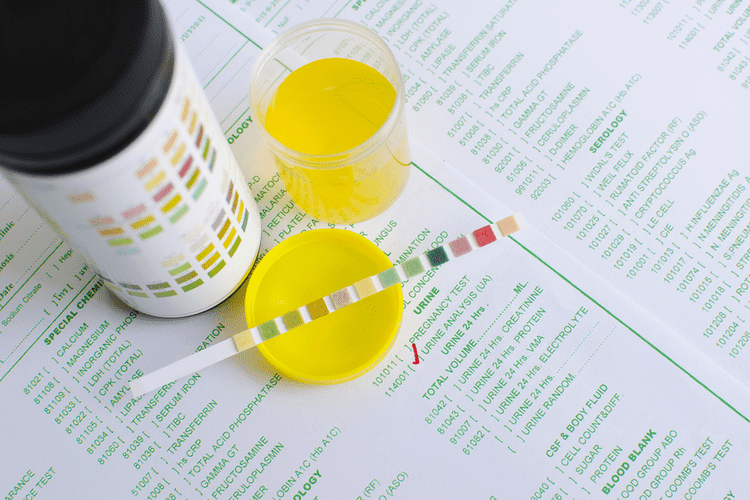Why Is Your Vision Blurry in the Morning?
Blurred vision can be caused by eye conditions, medical conditions or it may be a side effect of certain medicines. If you have blurred vision, the things you see will not look sharp and clear. You may experience blurred vision in one or both eyes, depending on what is causing it. It may affect only part of your vision, or your whole visual field.
If you have recently started a new medication, it is important to discuss these symptoms with your healthcare provider to determine if they could be related. Feeling dizzy and experiencing blurry vision can be quite alarming, and it’s important to understand why these symptoms occur. While the underlying reasons may differ, the common thread here is that both symptoms can significantly impact our perception of the world around us.
Brain Tumor
Being in a moving vehicle, especially if you’re reading or looking at a screen, can cause dizziness and blurry vision. To manage this, try to focus on a fixed point in the distance, such as the horizon. This can help your brain reestablish a sense of balance and reduce dizziness and blurry vision.
- Eyeglasses or contact lenses can treat refractive errors, and eye drops can treat dry eyes.
- They’ll check your eye and talk to you about when to remove the dressing.
- Maintaining healthy blood pressure and cholesterol levels can also reduce your chance of other health problems that can affect your eyes, such as stroke.
- It causes a progressive loss of central vision of both eyes, but does not affect peripheral vision.
- Yes, there are certain medications that can cause dizziness and blurry vision as side effects.
- You can take steps to help control these unwanted effects.
What Causes Glassy Eyes?
- Refractive errors such as nearsightedness, farsightedness, or astigmatism can also cause blurry morning vision.
- In addition to these strategies, it’s also helpful to practice self-care and engage in activities that bring you joy and relaxation.
- An ocular migraine episode is a temporary occurrence and typically isn’t a medical emergency.
- If this film isn’t removed, it’ll continue to grow until it blocks the meibomian glands.
- When you wake up in the morning, your eyes may feel dry, gritty, and your vision may be temporarily blurred.
Many patients begin to worry that they are not healing properly if they are not completely healed by two to three weeks. It is important to share your fears with your doctors and allow them to alleviate any fears, which may develop after surgery. The most common complaint patients express after glaucoma surgery is that they feel a “scratchy” sensation for the first 4 to 6 weeks. Patients are actually feeling the stitch that is used to close the surgical wound. The stitch does not need to be “removed” because it will dissolve automatically.
Medical and Environmental Factors Contributing to Morning Blurriness
This can result in blurred vision, especially in the morning when the eyes are still adjusting to their surroundings. Common refractive errors include nearsightedness, farsightedness, and astigmatism. Wearing corrective lenses, such as glasses or contact lenses, can help improve vision in these cases.
Low Blood Pressure
I have been to the doctor twice about this and both times I was told nothing was wrong with me. Reading online I seen that some people having some of the issues I have, have anxiety. But like today and yesterday I felt fine and out of the blue it hit. About 4 years ago I was sitting at my blurry vision after drinking pc and had a huge head rush like I was about to faint.
Like other eye surgeries, bleeding and infection are very low, but possible risks. Most patients can be successfully treated with one to two sessions of laser therapy. In severe glaucomas, the treatment may have to be repeated two to three times over the first year to obtain maximum pressure control. One of the greatest advantages of the procedure is that it can be repeated as often as is needed. The cyclodestructive procedures are also useful in patients in whom conventional surgery is contraindicated by their systemic health or local ocular condition.
We all enjoy a sweet treat now and then, but too much sugar in our diet can come at a price.
In conclusion, experiencing dizziness and blurry vision along with other symptoms such as nausea, headaches, or fatigue can indicate various underlying conditions. Consulting a healthcare professional is essential for a proper diagnosis and appropriate treatment. By discussing your symptoms and medical history, they can help determine the cause of your symptoms and develop a personalized treatment plan to alleviate them. If someone does contract the flu and experiences mild ocular symptoms, over-the-counter lubricating eye drops can provide relief.
“It helps with oxidative stress, and that’s what causes cataracts,” Massaro-Giordano says. However, your actual risk depends on a variety of factors including how much caffeine you drink, if you already suffer from an eye problem or if you are predisposed to one. The good news is, although the research is mixed, moderate amounts of caffeine do not appear to increase the risk of eye disease for most people, Massaro-Giordano says. Her writing is characterized by clarity and engagement, aiming to make complex medical topics accessible to all. When not writing, Lauren dedicates her time to running a small farm with her husband and their four dogs. It’s important to note that if your dry eye worsens, the friction caused by a lack of moisture can eventually lead to corneal ulcers, a vision-threatening condition.
Some other health consequences include changes in teeth, hair, skin, and general behavior, but the most visible indicator of substance misuse is the person’s eyes. Most pupils, when high, are either dilated or constricted. One of the significant side effects is changes in the appearance of the eyes, including the pupil’s motion and size and the color of the whites. Consistent substance misuse leads to constriction or dilation of the eyes. Start by taking our free, confidential online health self-assessment.
Monitoring for dangerous symptoms and urgently consulting licensed healthcare professionals avoids further illness progression and eases suffering. Don’t try to push through intense abdominal pain, vomiting or alarming vision changes alone without medical guidance. You can take steps to help control these unwanted effects.
But the drug can slow down the progression of AMD and other conditions, and help you keep your vision. At high levels, VEGF can cause abnormal blood vessels to grow in your eye, resulting in fluid leakage. By blocking VEGF, these drugs can decrease fluid leakage into your macula, which is the center of your retina.



















